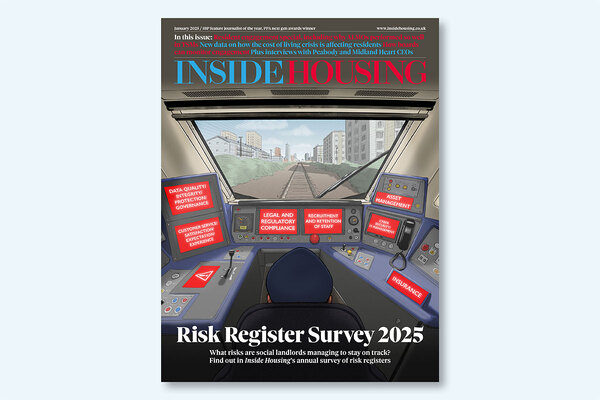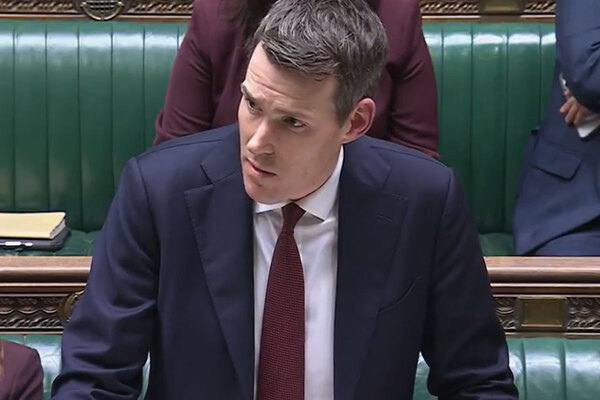You are viewing 1 of your 1 free articles

Sam Lister is policy and practice officer at the Chartered Institute of Housing
Universal Credit problems are much wider than just administrative issues
As the full Universal Credit service rolls out to all postcode areas, Sam Lister outlines ways the policy could be improved
Like many issues, Universal Credit is being overshadowed by Brexit, but we must not lose sight of the fact that the system is at crisis point two-and-half years after the full service roll-out first got underway.
The Trussell Trust’s network of foodbanks distributed a record 1.3 million food packages last year. While this represented a 13 per cent increase on the previous year, they have seen a much bigger increase (52 per cent) in areas where universal credit full service had been in place for the whole year.
Meanwhile research carried out by the National Federation of ALMOs and the Association of Retained Council Housing shows that three quarters of universal credit recipients are in arrears and that their average arrears are one and a half times higher than among tenants in general.
There’s no denying that the well-documented administrative problems associated with universal credit are causing serious issues, but I believe the system has exposed a much wider problem – the fundamental inadequacy of benefit rates.
If you take into account all of the cuts that have taken place in recent years – including the bedroom tax, the benefit cap, and the Local Housing Allowance (LHA) freeze – and the fact that people are being affected by multiple combinations of these cuts, it’s no wonder that people are struggling.
The legacy benefits system – where benefits were split into different categories and paid weekly – made it easier for people to budget and covered up the issue to a certain extent.
The administrative problems associated with universal credit, wider cuts to benefits and an aggressive sanctions system have created a toxic mix, and we’ll be highlighting this in our submission to the Work and Pensions select committee inquiry into the welfare safety net.
What we need is a fundamental review of our welfare system and the cumulative impact of the reforms that have been introduced since 2012 – but what else needs to change?
Reversing the remaining cuts to work allowances: Despite changes announced in the Autumn Budget, some households are still not granted a work allowance and therefore see their universal credit award reduced as soon as they move in to any form of work. We believe that fully restoring work allowances for all types of households would significantly improve work incentives for claimants.
1. Unfreezing LHA rates and returning them to market levels: Our research has shown that cuts to LHA rates is making private renting unaffordable across most of Great Britain. Restoring rates to market levels would significantly reduce rent arrears and the risk of homelessness.
2. Reducing the use of sanctions: Government statistics show that as many as five per cent of universal claimants are subject to a sanction at any given time. With evidence also showing that a significant proportion of these are eventually overturned upon appeal, we would encourage the Department for Work and Pensions to carry out a full review.
3. Exploring options to introduce split payments: We remain concerned about the potential impact of universal credit on victims of domestic abuse. The Scottish Government is committed to introducing split payments as the default for all claimants and would urge the UK government to work with them and to consider introducing the same approach across the UK, once it has been shown to work.
4. Considering further options to reduce the wait for a first payment: Despite changes that have been introduced to ease the transition to universal credit, a five-week wait for payment remains a serious problem for many claimants.
There are ways to address this issue, including: shortening claimants’ initial assessment period (thereby allowing them to transition more gradually to a monthly payment cycle), moving to a system where universal credit is regularly paid half in advance and half in arrears, or moving to a system of fortnightly payment cycles as standard.
This would mean changing one of the key principles of universal credit – that it is paid monthly in arrears to mimic a monthly salary.
“Given the level of suffering experienced by many claimants I believe monthly payments must be reconsidered”
So far the government has remained steadfastly committed to this principle, although Work and Pensions secretary Amber Rudd has written to colleagues this week noting the concerns expressed about the time it takes to get money to claimants and promising to listen to those concerns.
Given the level of suffering experienced by many claimants I believe monthly payments must be reconsidered.
Do they work in the current economy? It might be true that most people are paid monthly in arrears but it’s not necessarily the case for people in low-paid work or for people who are moving in and out of work – the very people most likely to be claiming universal credit.
Sam Lister, policy and practice officer, Chartered Institute of Housing
More on Universal Credit
A rock and a hard place: the Universal Credit frontline Universal Credit was meant to simplify the welfare system and give people control over their finances. But in one London borough,Gavriel Hollander finds the reality is very different.
Universal Credit: how we got here Inside Housing's Pete Apps traces the history of the government's flagship welfare reform
Starting to bite: how Universal Credit is making people homeless For the first time, Inside Housing has uncovered figures which suggest Universal Credit is making people homeless
Universal Credit needs universal co-operation As cracks in the consensus that Universal Credit is beneficial to claimants appear, the Department for Work and Pensions must co-operate with all partners to ensure the policy is a success, writes Eamon McGoldrick
Ministers need to open their eyes to the impact of Universal Credit Inside Housing editor Emma Maier calls for ministers to take notice of the problems affecting the government's key welfare reform
Universal Credit problems are much wider than just administrative issues As the full Universal Credit service rolls out to all postcode areas, Sam Lister outlines ways the policy could be improved











